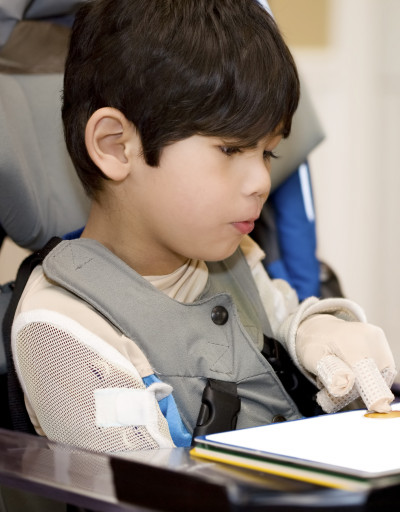About the Prize
The Prize will be offered biennially. The Prize will be awarded in each biennial edition and will be divided equally to:
- An Individual Person;
- and an Organization.
These awards are for individuals and organizations and are not for projects or programmes. Successful individuals and organizations will usually have undertaken a series of relevant projects and programmes, developed appropriate tools or resources, and enhanced co-operation and partnerships that will contribute to their achievements, but it is the overall personal or organizational contribution that will be assessed.
The total amount available for the Prize biennially is USD $ 40,000, which will be distributed equally between the individual and the organizational winner.
UNESCO will publicize the Prize winners, and will seek to work with them to enhance and promote their continued activities in the field of the digital empowerment of persons with disabilities.
Prize winners (Laureates) will be selected by the Director-General of UNESCO on the basis of the assessments and recommendations made by a Jury.
All processes relating to the administration of the Prize will adhere to UNESCO’s Statutes for the Prize.
Thematic Axes
The Prize builds on three thematic axes of importance in UNESCO’s work with persons with disabilities, including an immediate response to the COVID-19 outbreak.
- Formulating policy, advocacy, co-operation and partnerships;
- Creating and developing digital solutions, enabling environments and processes, including tools and resources;
- Building and strengthening the capacities of people to create, adapt and use digital solutions in a cost efficient and sustainable manner.
Conceptual context of the Prize
Definitions of digital empowerment, disabilities, digital solutions, resources and technologies, and organizations are complex, and applicants are encouraged to justify their own understandings of these concepts in their application forms should they so wish. For the purposes of the Prize, the following conceptual context should be considered when preparing an application:
- Digital Empowerment. The Prize defines digital empowerment as the processes whereby people are able to have more power and control over their lives through the use of digital solutions, resources and technologies, particularly in terms of greater inclusion, participation and contribution to societal development as well as enhanced life experiences. UNESCO places particular emphasis on the ways through which information and knowledge can contribute to the empowerment of persons with disabilities notably by:
- Formulating policy, advocacy, co-operation and partnerships;
- Creating and developing digital solutions, enabling environments and processes, including tools and resources;
- Building and strengthening the capacities of people to create, adapt and use digital solutions in a cost efficient and sustainable manner.
- Formulating policy, advocacy, co-operation and partnerships;
- Persons with Disabilities. The Prize uses a definition of persons with disabilities in alignment with the UN Convention on the Rights of Persons with Disabilities as “Persons with disabilities include those who have long-term physical, mental, intellectual or sensory impairments which in interaction with various barriers may hinder their full and effective participation in society on an equal basis with others”. Applicants are encouraged to clarify their own understandings and contexts of disability in their applications should they consider that this would be helpful.
- Digital solutions, resources and technologies. The Prize recognizes the converged nature of many ICTs and adopts a broad definition of the term digital solutions as a combination of:
- Digital technologies: any digital informational or communication device or application, including but not restricted to mobile phones, computers, laptops, televisions, radios, satellite systems, networks, hardware, software and applications;
- Digital resources: content and information that are accessible through digital technologies; and
- Enabling environments and processes: standards, tools, physical, technical and online infrastructures, resources and locations. Applicants are encouraged to justify their choice of digital resources, resources and/or technologies should these not self-evidently lie within this definition. It can be noted that UNESCO encourages the development and use of digital solutions based on open standards, accessible and openly licensed content and resources, and Free and Open Source Software (FOSS).
- Digital technologies: any digital informational or communication device or application, including but not restricted to mobile phones, computers, laptops, televisions, radios, satellite systems, networks, hardware, software and applications;
- Organizations. The Prize adopts a broad definition of organizations for the purpose of eligibility, including government departments, non-governmental organizations (including charitable organizations, faith-based organizations, research and educational organizations, trade unions, professional associations and foundations) and companies (both for-profit and social enterprises). Applicants must specify their formal registration details, and applications from informal groupings of people will not be considered. An individual may, though, be nominated as a representative of a group of people.
Nominations that do not justify their choice of definitions in their applications, should they not clearly satisfy these definitions, will be excluded from consideration. Nominating Entities should take this into consideration in making their nominations.


